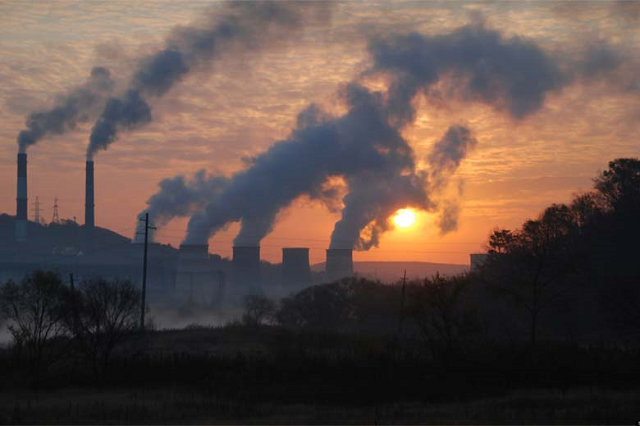Technology can mitigate impact of climate change
It will help reduce carbon emissions while sustaining growth in economic structure

It will help reduce carbon emissions while sustaining growth in economic structure.
PHOTO: REUTERS
This warning is becoming more and more evident as we witness extreme weather events like wildfires in California, hurricanes in different parts of Latin America, snowfall in the Sahara desert and Japan’s record breaking heat and typhoon, which are some of the recent examples from 2018.
This has also been reiterated by the Global Climate Risk Index 2018 which analyses the extent to which countries have been affected by weather-related loss events (storms, floods, heat waves, etc).
Climate change could cost US 'hundreds of billions' a year: study
With data ranging from 1997 to 2016, the index has shared grave results on the state of global climate. Of the 10 most affected countries, nine were developing countries in the low-income or lower middle-income group, while only one was classified as an upper middle-income country.
Countries affected the most in their dataset were Haiti, Zimbabwe and Fiji. The index has recorded a grim warning for Pakistan. Countries like Haiti, the Philippines and Pakistan that are recurrently affected by catastrophes continuously rank among the most affected countries in the long-term index.
Climate change has definite and far-reaching implications for the national economy with some studies estimating that the increase in global mean temperature will result in a 1.3% decline in the personal income of an individual.
Meagre resources allocated to tackle climate change
What is the case for Pakistan and what can be done to mitigate the effects of climate change at a more micro, city level to stall losses to the national income?
Pakistan and climate change
Long-run estimates by the Global Climate Risk Index show that in the period from 1997 to 2016, Pakistan lost $3.5 billion due to climate-related events, amounting to 0.6% of gross domestic product (GDP).
Pakistan ranks seventh out of the top 10 countries most affected by extreme weather events. As mentioned previously, developing countries are more vulnerable to the impact of climate change due to two reasons.
Firstly, poorer countries are more vulnerable due to their dependence on agriculture and water resources which are more at risk from the vagaries of weather and hence climate change. This is the case with Pakistan as well.
Secondly, poorer countries may not have the access as well as the capacity to pay for relevant technologies that would help mitigate the effects of climate change. Poorer countries may also not have the right set of institutions that can help protect them against the weather.
Governments of developing countries sometimes lack the political will to employ large-scale infrastructure such as irrigation and coastal protection and more often are beset with issues relating to poor management of resources.
Cities and climate change
National efforts by the policymakers to reduce carbon dioxide emissions need increasingly specific, sub-national information about the sources of carbon dioxide and the potential reduction and economic implications of different possible choices. This is where cities come in and play an increasingly important role. Cities, which are shelters for more than half of the world’s population and responsible for three quarters of global energy consumption and greenhouse gas emissions, should be at the core of the global climate change mitigation.
An interesting recent paper, published on this topic by Zhifu Mi at the Bartlett School of Construction and Project Management, UCL has focused on cities and carbon emissions in China. The authors have shown that city-level improvements in technology are a practical and effective means of reducing emissions while sustaining growth in their respective economic structure and energy systems.
The authors exhibit that in the case of China, technological progress can cut emissions by a significant 31% through updating a disproportionately small fraction of the existing infrastructure.
City-level technological progress can be implemented in Pakistan as well which would be a much more cost-effective method for environmental protection rather than expending billions on large-scale infrastructure whose benefits are debatable. Will our policymakers pay heed?
The writer is a doctoral candidate at The Bartlett, UCL
Published in The Express Tribune, November 26th, 2018.
Like Business on Facebook, follow @TribuneBiz on Twitter to stay informed and join in the conversation.



















COMMENTS
Comments are moderated and generally will be posted if they are on-topic and not abusive.
For more information, please see our Comments FAQ